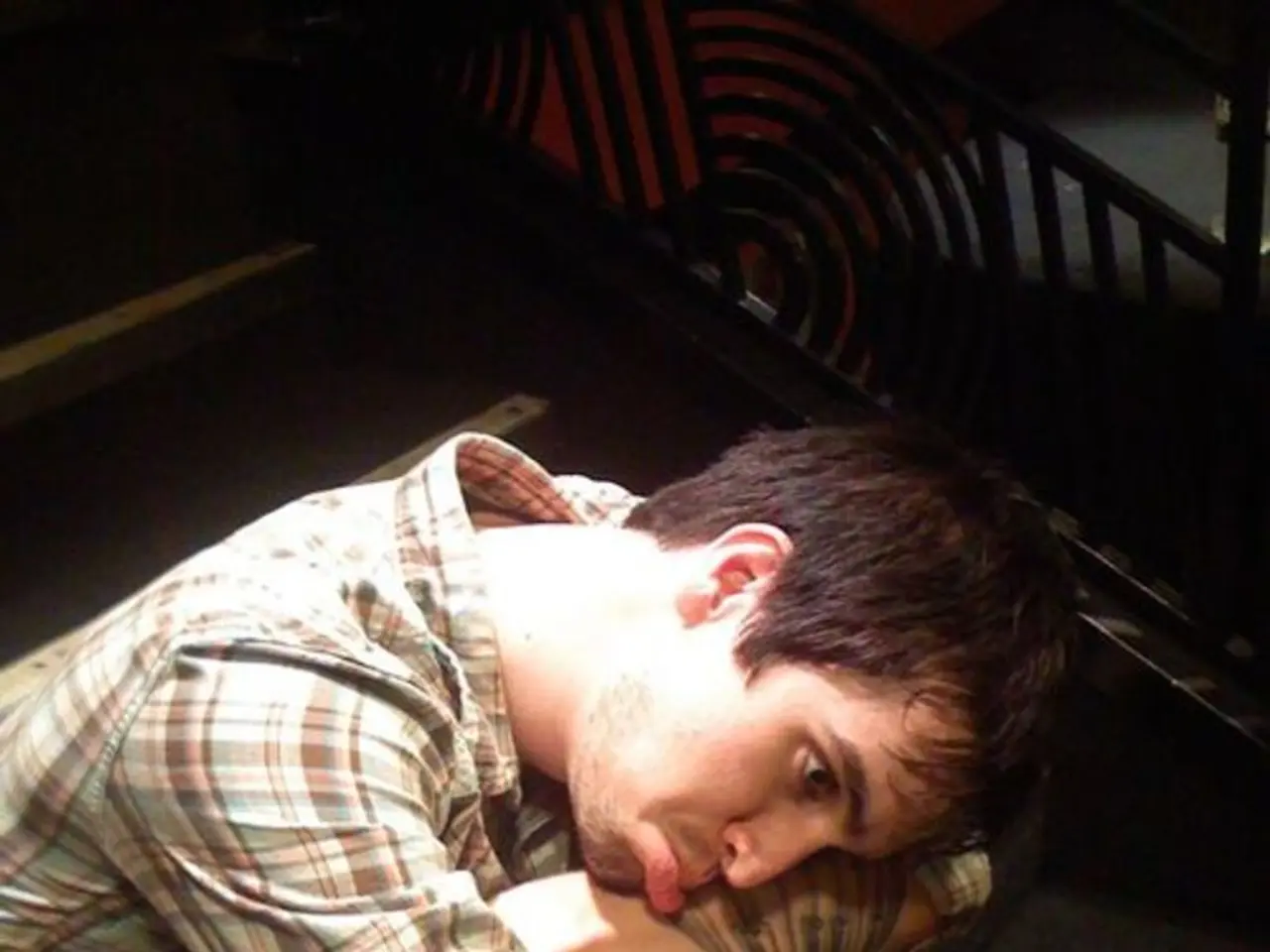Depressed Mood State: Characteristics, Manifestations, and Remedies
Mental health exists on a spectrum, and depression can take on many forms. One such form is agitated depression, a term used to describe feelings of agitation as a symptom of depression or bipolar disorder.
Agitated depression is not a clinical diagnosis in the DSM-5, but it is referred to as "major depressive disorder with mixed features" or "mixed depression" or "mixed features" in some cases. This condition is characterized by a depressed mood lasting 2 or more weeks, accompanied by ongoing feelings of hopelessness, loss of interest in socializing or activities, low energy, changes in sleep patterns, difficulty concentrating, and thoughts of death or suicide. Agitation can show up as many symptoms and behaviors, including aggression, impulsive behavior, angry outbursts, excessive energy, restlessness, irritation, physical fidgeting, quick or excessive talking, racing thoughts, repetitive movements, trouble concentrating, and more.
According to a 2004 study, 34.7% of participants with major depressive disorder or bipolar disorder reported symptoms of agitation. Agitation seems to be more common in people with severe, chronic depression. It's essential to note that agitation can appear in other types of depression, not just major depressive disorder.
Managing stress is a great way to get ahead of potential agitation. Techniques include taking deep breaths, taking a bath, or coloring. Finding a hobby, doing a daily "mind dump," staying ahead of basics, and channeling excess energy are other methods for managing stress. Minimizing or deescalating conflict and practicing cognitive behavioral therapy (CBT) techniques can help manage anger.
Suicide prevention resources are available for those struggling with feelings of agitation or depression. These include texting or calling 988, chatting at 988lifeline.org, or texting "HOME" to the Crisis Text Line at 741741.
Finding the right treatments can help manage symptoms of agitated depression. Therapy, particularly CBT, can be beneficial for managing depression or bipolar disorder. A therapist can help determine underlying causes, practice coping strategies, and discuss medications.
The term "agitated depression" originated in psychiatric literature describing mixed states where depressive symptoms are accompanied by motor agitation or restlessness. It was first clinically recognized in the 19th century with Emil Kraepelin's descriptions of "manisch-depressives Irresein" (manic-depressive insanity) including mixed manic and depressive symptoms.
It's important to remember that everyone's experience with mental health conditions is unique. If you or someone you know is experiencing symptoms of agitated depression, it's crucial to seek help from a healthcare professional. They can provide a proper diagnosis and treatment plan tailored to your specific needs.
Anxious distress is another specifier for major depression in the DSM-5, used when symptoms of anxiety coincide with depression but not necessarily agitation. If you're feeling anxious, it's essential to reach out for support as well.
In conclusion, agitated depression is a complex and often challenging condition, but with the right support and treatments, it can be managed effectively. If you or someone you know is struggling, don't hesitate to reach out for help. Resources are available, and recovery is possible.
Read also:
- Understanding Hemorrhagic Gastroenteritis: Key Facts
- Stopping Osteoporosis Treatment: Timeline Considerations
- Tobacco industry's suggested changes on a legislative modification are disregarded by health journalists
- Expanded Community Health Involvement by CK Birla Hospitals, Jaipur, Maintained Through Consistent Outreach Programs Across Rajasthan








